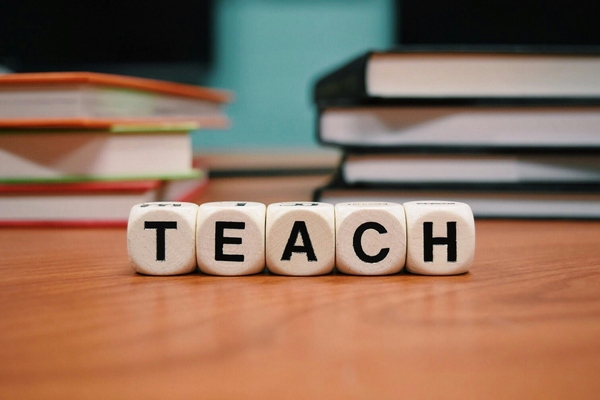Here’s Why Every Teacher Should Study Special Education
Understanding the principles of special education is a valuable skill set for any teacher, even if it is not the focus of their teaching career. In any classroom setting, there are going to be students that have unique needs. A knowledge of special education will not only enrich teaching practices but also ensures that all students receive the support essential for thriving.
Moreover, a study in special education creates a classroom culture of inclusivity and respect, where every student’s learning journey is valued and supported.
Understanding of Student Diversity
The foundation of effective teaching lies in recognizing and valuing the diversity of students’ learning needs. By studying special education, teachers gain deeper insights into the spectrum of these needs, encompassing everything from mild learning disabilities to more significant challenges. This enhanced understanding enables educators to appreciate the individual differences among their students, fostering a classroom environment that celebrates diversity and promotes equity.
When teachers understand the unique paths students take in their learning journeys, they are better equipped to tailor their instructional strategies to meet each student’s needs, ensuring no one is left behind.
Improved Classroom Strategies
Knowledge acquired through special education studies arms teachers with a robust toolkit of teaching strategies designed to address a wide range of learning preferences and challenges. These strategies may include differentiated instruction, the use of technology to enhance learning, and modifications to classroom environments that reduce distractions and promote focus.
By implementing these specialized techniques, teachers can create more inclusive classrooms where all students, regardless of their individual needs, have the opportunity to engage with the curriculum and achieve their full potential. This approach not only supports students with identified disabilities but also enhances the learning experience for the entire class.
Accessibility to Specialized Programs
The demand for specialized educational strategies and interventions is growing, emphasizing the need for teachers to have access to specialized training. Pursuing a special education Bachelors degree online from Wilson College offers a convenient and flexible route for educators wishing to deepen their expertise in this area. Online programs allow teachers to balance their professional responsibilities with their educational pursuits, making it easier to integrate new learning directly into their classroom practice.
This accessibility to specialized education not only benefits the individual teacher but also has a profound impact on the quality of education provided to students with special needs.
Legal and Ethical Knowledge
A critical component of special education training involves understanding the legal and ethical frameworks that govern the education of students with disabilities. Teachers must be familiar with legislation such as the Individuals with Disabilities Education Act (IDEA) in the United States, which ensures students with disabilities are provided with a free appropriate public education.
By studying special education, teachers become knowledgeable about these legal requirements and the ethical considerations involved in providing equitable education. This knowledge is crucial for advocating for the rights of students with special needs and ensuring that all educational practices are compliant with current laws and ethical standards.
Enhanced Communication Skills
Effective communication is at the heart of successful education, and this is particularly true in the context of special education. Teachers must be able to communicate clearly and effectively with a variety of stakeholders, including students, parents, special education professionals, and other educators. Special education training enhances these communication skills, equipping teachers with the ability to convey complex information in accessible ways, listen actively to concerns, and collaborate effectively to develop and implement individualized education plans (IEPs).
Improved communication fosters stronger relationships between all parties involved in a student’s education, leading to better support and more positive outcomes for students with special needs.

Increased Patience and Empathy
Delving into special education cultivates patience and empathy, virtues indispensable to fostering a nurturing and supportive classroom environment. Teachers become more attuned to the individual struggles and strengths of each student, enabling them to approach teaching with greater compassion. This patience and empathy extend beyond academic support, helping students feel valued and understood.
The emotional and psychological support that stems from a teacher’s empathy can significantly impact students’ self-esteem and motivation, encouraging them to engage more fully in their learning.
Preparation for Inclusivity
Studying special education prepares teachers to implement inclusive education practices effectively. Inclusivity in education is about more than just physical presence in the classroom; it’s about ensuring that all students actively participate in learning and feel a sense of belonging. Armed with knowledge from special education, teachers can design lessons that are accessible to students with a wide range of abilities and learning styles, promoting an environment where differences are not just accommodated but celebrated.
This preparation is crucial for building classrooms that reflect the diversity of the world outside, teaching all students the value of diversity and inclusion.
Professional Growth and Career Opportunities
A background in special education not only enriches a teacher’s skill set but also opens up a myriad of professional growth and career opportunities. Educators with specialized knowledge in special education are highly sought after, as they can meet the diverse needs of students more effectively.
This specialization can lead to roles such as special education teacher, inclusion coordinator, or educational consultant, among others. Moreover, teachers with this expertise often take on leadership roles within their schools, guiding and training their colleagues in inclusive and differentiated instruction strategies.
Positive Impact on School Culture
Teachers trained in the principles of special education play a pivotal role in shaping a positive and inclusive school culture. Their commitment to meeting the needs of all students, regardless of their abilities, sets a powerful example for the entire school community. This influence can lead to broader acceptance and implementation of inclusive practices school-wide, promoting a culture of empathy, respect, and high expectations for all students. Such a culture not only benefits students with special needs but enriches the educational experience for the entire student body.
Personal Fulfillment
Beyond the professional advantages, studying special education offers a deep sense of personal fulfillment. Knowing that you have the skills and knowledge to make a meaningful difference in the lives of students with special needs is profoundly rewarding. Teachers often find that this area of study renews their passion for education, reminding them of the profound impact they can have on a student’s life. The challenges and successes experienced in special education can be uniquely satisfying, offering a sense of accomplishment that comes from overcoming obstacles and helping students achieve their full potential.
Conclusion
Every teacher can benefit from studying special education, as it equips them with the knowledge, skills, and perspectives needed to support all students effectively. From fostering empathy and patience to preparing for inclusivity and contributing to a positive school culture, the principles of special education are fundamental to creating equitable and effective learning environments. Moreover, the personal and professional growth that comes from this field of study offers lasting benefits, enriching teachers’ careers and lives. As education continues to evolve, the demand for teachers skilled in special education will only grow, highlighting the importance of this discipline in shaping the future of inclusive education.






 Explore the Safe Search Engine -
Explore the Safe Search Engine -